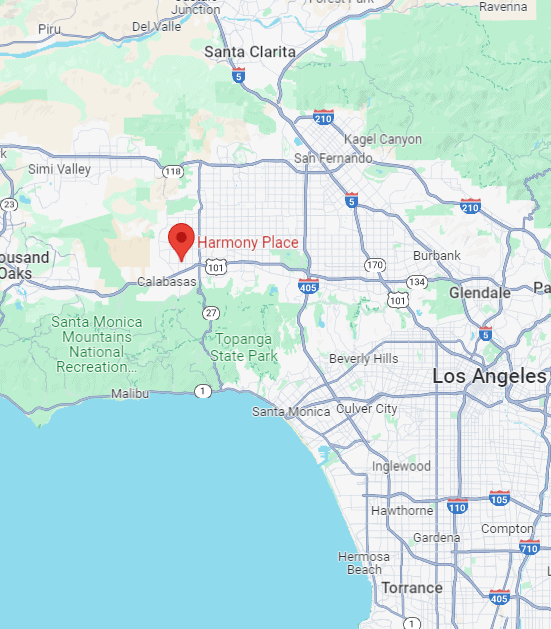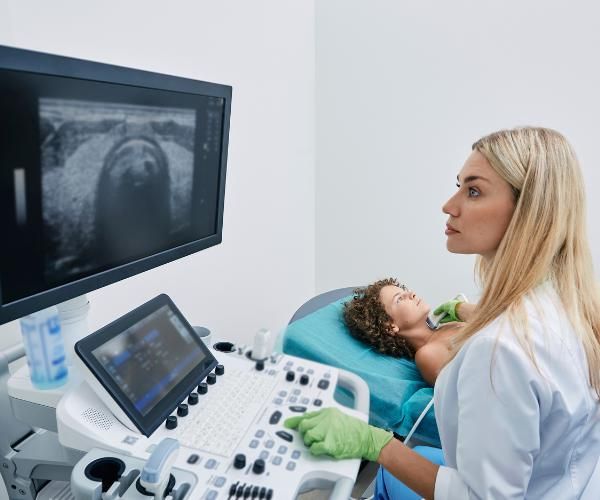Substance Abuse Treatment Programs for Healthcare Professionals in California
Harmony Place offers rehab programs for healthcare professionals in Los Angeles, California. We recognize the distinct challenges faced by the labor force in the California medical and health services field, such as extended work hours, high-pressure settings, and the emotional strain of patient care. Our private and adaptable treatment programs support your recovery while protecting your career and professional standing.
If you’re seeking addiction treatment for healthcare workers in California, contact us at Harmony Place. This resource page connects you with the best drug rehab centers for frontline healthcare employees in California dealing with burnout, compassion fatigue, or substance use concerns. You’ll also find details on the costs associated with drug and alcohol rehab for healthcare employees in California, as well as the types of addiction treatment programs available for California’s healthcare workforce.
How Common Is Substance Use Disorder Among Healthcare Professionals in California?
Substance Use Disorder (SUD) is more prevalent among healthcare workers in California than you might think. Research indicates that around ten to fifteen percent of skilled clinical professionals in hospitals and clinics will encounter SUD. This rate is like or slightly higher than that of the general population, mainly due to intense stress, burnout, and easy access to controlled substances.
If you’re a medical or allied health professional in California, you may experience distinct pressures in the healthcare field, such as long work hours, exposure to traumatic events, and a culture that often discourages seeking help. These elements increase the likelihood of substance misuse, especially with prescription drugs. Although the state offers monitoring and diversion programs to aid recovery, the stigma and fear of professional consequences may deter you from seeking prompt treatment. If you have questions about confidential medical rehab for professionals in California, contact us at Harmony Place.
Can Healthcare Professionals Access Treatment Without Leaving Their Jobs?
You can access addiction treatment for medical and behavioral health workers across California without leaving your job. Many drug or alcohol rehab treatment programs are crafted with flexibility and confidentiality in mind. Options such as short-term leave, outpatient rehab programs, and customized schedules enable you to receive effective treatment while continuing your career.
Healthcare organizations are increasingly aware of the importance of supporting public and private healthcare service providers dealing with substance use disorders. Rehab programs for doctors, nurses, and allied health workers in California often blend evidence-based care with discretion to safeguard both your license and reputation. Holistic rehab treatment options include outpatient therapy, Medication-Assisted Treatment (MAT), or more structured residential addiction treatment recovery plans that accommodate your demanding work schedule. This approach ensures recovery is achievable without compromising your professional duties.
If you need assistance locating healthcare industry addiction treatment in California, contact us at Harmony Place. We will start with our complimentary evaluation, which will help us identify the type of support that most effectively suits your requirements, whether that involves our top-tier inpatient rehab centers or more adaptable outpatient rehab programs.
Do Treatment Centers Offer Specialized Support for Healthcare Workers?
Many treatment facilities that offer drug and alcohol rehab for nurses and medical staff in Southern California provide specialized support programs crafted just for you. These initiatives acknowledge the distinct challenges faced by union members in the California healthcare sector, including extended shifts, intense pressure, and access to regulated substances.
Most of these detox and rehab centers offer dual diagnosis rehab treatment and discreet care aimed at safeguarding your career while effectively tackling issues related to substance use and mental health simultaneously.
Specialized care for union-affiliated healthcare workers across California might include peer support groups for medical staff, counseling focused on job-related stress, and programs that liaise with professional oversight boards when needed. These services help you recover while preserving your professional reputation and ensuring a secure return to your duties. To learn more about our alcohol and drug rehab for physicians, nurses, and clinical staff in California, contact us at Harmony Place.
Statistics on Addiction for Medical and Healthcare Professionals in California
Statistics reveal that addiction is a significant yet often overlooked issue among California’s healthcare workforce. You might be interested to know that the California Medical Board is promoting the Physician Health & Wellness Program (PHWP), which is backed by the 2025 legislation AB 408, to offer treatment and structured oversight for physicians managing conditions like Substance Use Disorders (SUDs).
Similarly, the California Board of Registered Nursing (BRN) operates a voluntary intervention program that extends confidential recovery and monitoring as an alternative to formal disciplinary action. Although thousands of nurses have reportedly completed this program, recent media reports have raised questions about its consistency and long-term success. Despite these available resources, only about 0.1% of the state’s healthcare workforce faces disciplinary action each year, suggesting that the actual prevalence of SUD is likely much higher than disciplinary records indicate.
Research and statewide data further underscore the magnitude of the problem. A 2013 study by Merlo, Singhakant, Cummings, and Cottler discovered that physicians often misuse prescription drugs to manage physical pain, psychiatric distress, or workplace stress, with additional reasons linked to recreational use and managing withdrawal. These findings suggest that substance misuse is frequently tied to the demands of the profession rather than solely for leisure. Broader statistics reinforce this concern: according to the California Health Care Foundation (CHCF), nearly one in six Californians—including healthcare workers—qualified for a substance use disorder in 2022, with ongoing analyses in 2024 highlighting the persistence of alcohol and drug-related issues throughout the state. Altogether, these insights emphasize the complex and underreported nature of addiction among healthcare workers in California.

We Will Check Your Insurance
When Should a Healthcare Worker Consider Inpatient Rehab Instead of Outpatient Care?
You should consider attending inpatient rehab centers if your addiction has severely affected your professional duties, personal life, or health. This makes it challenging to manage recovery in a less structured setting. 24/7 rehab facilities offer round-the-clock medical and emotional support, ensuring safety during detoxification and reducing the risk of relapse.
Residential addiction treatment is crucial if your addiction is severe, you’re dealing with co-occurring mental health disorders, or have made repeated failed attempts at outpatient rehab programs. Alternatively, outpatient addiction recovery services might be appropriate if you have milder substance use concerns, a strong support network, and the ability to juggle treatment with work commitments if you’re one of many clinic, hospital, and emergency room staff.
However, inpatient rehab eliminates workplace stress and daily triggers, providing a controlled environment for recovery. By opting for residential addiction treatment, you can concentrate entirely on healing, develop healthy coping skills, and return to your career with a more robust foundation for sustained sobriety.
Contact us at Harmony Place to help you identify the option that best matches your individual aspirations. Our passionate team can help you find a program that aligns with the work commitments of healthcare workers in California, meets licensing requirements, and supports your personal recovery goals.
What Roles Are Included in the Healthcare Workforce?
Healthcare workers in California comprise a diverse range of professionals collaborating to deliver patient care, promote well-being, and maintain public health. These roles cover clinical, therapeutic, and supportive services, each contributing to patient results. Here are a few examples of positions within the labor force in the California medical and health services field, though this is not an exhaustive list:
Nurse (RN, LPN, CNA)
You provide direct patient care, administer medications, monitor health conditions, and educate patients about medical treatment plans. Depending on your training and licensure, you might work as a Registered Nurse (RN), Licensed Practical Nurse (LPN), or Certified Nursing Assistant (CNA).
Physician / Doctor (MD or DO)
As a physician, you identify health conditions, develop treatment plans, prescribe medications, and manage patient care. As a Doctor of Medicine (MD) or Doctor of Osteopathic Medicine (DO), you might focus on areas like pediatrics, surgery, cardiology, or family medicine.
Medical Assistant (MA)
As a medical assistant, you support doctors and nurses by handling both administrative and clinical responsibilities. You might take vital signs, prepare patients for examinations, manage medical records, and assist with office tasks to ensure the healthcare environment runs smoothly.
Respiratory Therapist
As a respiratory therapist, you specialize in helping individuals with breathing issues, such as asthma, COPD, or lung infections. You deliver life-saving treatments, operate ventilators, and collaborate closely with doctors to assist those with both short-term and long-term respiratory challenges.
Pharmacist / Pharmacy Technician
If you’re a pharmacist, you make sure that patients get the right medications and offer guidance on how to use them properly and what side effects to watch for. As a pharmacy technician, you support pharmacists by helping prepare prescriptions, managing stock, and attending to patients’ needs in retail or hospital settings.
Behavioral Health Counselor / Therapist
As a behavioral health counselor or therapist, you focus on mental wellness and addressing substance use. You offer guidance, help develop coping skills, and support to assist individuals in handling a myriad of issues such as anxiety, depression, or addiction.
Clinical Social Worker
As a clinical social worker, you help individuals tackle the emotional, social, and practical hurdles of healthcare, which can be extensive. You offer therapy, connect people with resources, and champion their causes as they navigate complex medical or personal situations.
How Long Do Most Healthcare Workers Spend in Rehab Programs?
The duration you might spend in rehab programs for doctors, nurses, and allied health workers in California can differ based on how severe your addiction is, any co-occurring mental health conditions, and the type of addiction treatment program you choose. If you participate in an inpatient or residential addiction treatment program, it will last about 30, 60, or 90 days.
However, you may continue with outpatient or step-down care for several weeks or months afterward. Since recovery is a very personal process, you may move into ongoing support like therapy, peer groups, or aftercare programs long after formal rehab concludes. A longer involvement in treatment and aftercare increases the likelihood of maintaining recovery.
If you have questions about the length of addiction treatment for healthcare workers in California, contact us at Harmony Place.

Addiction Rehab Programs for Healthcare Professionals in the Los Angeles, California Area
Harmony Place provides rehab programs for healthcare professionals in Los Angeles, California. We realize that credentialed healthcare staff in hospitals and clinics are subject to extended work hours, intense stress, and demanding settings. Our private drug rehab is carefully crafted to safeguard your career. Call (855) 652-9048 for more information about our rehabilitation for alcoholism and drug addiction.
Harmony Place Rehab Centers in Southern California
Our luxury rehab centers in Woodland Hills offer complete medical detoxification, residential addiction treatment, and dual-diagnosis rehab treatment. Our substance use disorder rehab programs come with private rooms, round-the-clock medical assistance, and a secure, confidential setting. We guarantee that doctors, licensed nurses, technicians, and therapists in California receive top-tier treatment.
Harmony Place
23041 Hatteras St.
Woodland Hills, CA 91367
Harmony Place East
22913 Burbank Blvd.
Woodland Hills, CA 91367
How Can Medical Professionals Locate Nearby Rehab Options?
Trying to find the most appropriate drug and alcohol rehab for healthcare employees in California may seem exhausting and impossible, given the multitude of treatment choices. Instead of spending countless hours browsing online, the simplest option is to contact us at Harmony Place.
If you prefer to start with self-guided research, we have also developed an easy-to-follow guide to support healthcare workers in California in examining addiction treatment programs that offer both privacy and adaptability:
- Identify Your Requirements:
Determine the level of care you require, such as detoxification, residential addiction treatment, partial hospitalization, intensive outpatient programs, or standard outpatient rehab programs and services. Consider your primary substance use, any co-occurring medical or psychiatric conditions, the need for medication-assisted treatment (like buprenorphine, methadone, or naltrexone), and evaluate your insurance coverage or payment options. Factor in geographic considerations, your work schedule, and any privacy concerns, particularly if you’re a healthcare professional concerned about licensing.
- Utilize Central Resources and Employer Support:
Begin with your workplace resources, such as the Employee Assistance Program (EAP), occupational health services, or the physician/nurse health program, which often have established referral networks and confidentiality measures. Additionally, explore national or state treatment locators, such as SAMHSA’s Treatment Locator, or your insurance provider’s directory.
- Conduct Quick Map and Online Searches:
Use Google Maps with queries like “drug rehab near me [city ZIP]” or “detox near me” to locate nearby affordable rehab facilities, their operating hours, and contact details. Supplement this with Google search results for further information on services, accreditation, and staff qualifications.
- Focus on Specific Care Levels and Services:
Search for facilities that offer the specific level of care and services you need, such as detox, residential treatment, inpatient care, partial hospitalization, intensive outpatient programs, outpatient counseling, or medication-assisted treatment clinics. If necessary, look for facilities specializing in dual diagnosis rehab treatment for co-occurring mental health conditions. Then, for example, you will be able to receive rehab for anxiety and addiction at the same time.
- Verify Credentials and Accreditation:
On each program’s website or via a quick phone call, confirm state licensing, accreditation (e.g., The Joint Commission, CARF), credentials of the medical director, availability of on-site medical staff for detox, and whether they offer medication-assisted treatment. Be cautious if there’s no medical director listed for detox programs or if licensed clinicians are absent.
- Confirm Insurance and Logistics:
Ensure the facility accepts your insurance (in-network or out-of-network), understands prior authorization requirements, provides self-pay rates, offers various lengths of stay, and offers telehealth options. Review the visitor and family policies to determine if they can accommodate the work schedule of physicians, medical technicians, and support staff in healthcare settings.
- Conduct a Phone Screening with a Checklist:
Call the detox and rehab centers and ask specific questions regarding immediate availability, their ability to manage withdrawal, MAT protocols, discharge planning, aftercare, and how rehab for hospital staff and healthcare technicians in California handles confidentiality and communication with licensing boards or employers.
- Evaluate Suitability for Healthcare Professionals:
Inquire if the addiction treatment program has experience treating healthcare professionals, such as nursing teams and clinical care crews, offers confidential services, separates medical records, and coordinates with PHPs or occupational health services.
- Arrange Referral and Coordinate Transitions:
Obtain written consent for any necessary releases, send relevant referral information (such as a medical summary, list of medications, and insurance details), and schedule a follow-up call to ensure engagement and a smooth transition, including transportation and first-day instructions.
- Plan for Aftercare and Follow-up:
Confirm your start date, ensure your medications (including MAT) are ready, and arrange for ongoing outpatient or peer-support follow-up, such as IOP, counseling, or support groups. Document all actions in accordance with your facility’s policies.
What Types of Addiction Treatment Programs Are Available for Healthcare Professionals?
As a healthcare professional, you encounter distinct pressures that can make overcoming addiction difficult. The appropriate care level hinges on the intensity of your addiction, job duties, and personal situation. Here are some examples of addiction treatment for healthcare workers in California accessible to you—while this isn’t an exhaustive list, it provides an insight into the most prevalent choices:
Inpatient or Residential Programs
Inpatient or residential addiction treatment provides a structured setting where you can take a break from job-related stresses and concentrate fully on your recovery. These programs, geared toward medical staff, supervisors, and unit managers in healthcare facilities, offer round-the-clock medical oversight, proven therapeutic techniques, and peer support, making them particularly advantageous for severe or chronic addictions.
Residential addiction treatment also helps you distance yourself from workplace triggers and allows you time to cultivate healthier coping mechanisms before returning to your professional life.
Partial Hospitalization Programs (PHP)
PHPs offer comprehensive care, enabling you to receive intensive treatment and still go home each night. These addiction treatment programs usually involve several hours of therapy and medical supervision during the day, merging the structure of inpatient rehab centers with the adaptability of outpatient life.
This kind of support is ideal if you need regular assistance but don’t require constant monitoring. It also helps you gradually return to everyday duties while remaining committed to your recovery.
Intensive Outpatient Programs (IOP)
Our Intensive Outpatient Programs cater to healthcare workers in California like you who require substantial support while still being able to handle work or personal obligations alongside your treatment. You’ll participate in sessions several times a week that emphasize therapy, skill development, and relapse prevention.
These addiction treatment programs help you juggle your professional duties while ensuring you remain committed to your care plan.
Online Addiction Rehab
Online addiction rehab offers you a flexible and discreet solution if you’re a healthcare professional dealing with scheduling challenges or worried about privacy. Virtual programs typically feature individualized care, counseling, group meetings, relapse prevention, and recovery guidance through secure platforms.
This method lets you receive support without leaving your job entirely, making it a practical option if you can’t commit to face-to-face treatment.
Sober Living
Sober living homes provide you with a nurturing setting as you move from treatment to independent life. These homes focus on responsibility, routine, and community support, urging you to stay sober as you ease back into the everyday activities of medical and allied health professionals in California.
This choice is especially beneficial if you seek added stability as you reenter your demanding career, helping you safeguard your recovery.
What Rehab Treatment Options Exist for Medical and Healthcare Professionals?
Healthcare workers in California encounter distinct hurdles when looking for addiction treatment, such as high-pressure work settings, job duties, and privacy worries. Luckily, numerous rehabilitation options are available to meet these requirements. Here are different levels of drug and alcohol rehab for healthcare employees in California, though it doesn’t cover everything:
Medical Detox
Medical detox offers you a secure, supervised setting to withdraw from substances while handling possible physical and mental challenges. You’ll receive continuous care from healthcare professionals, who ensure that withdrawal symptoms are addressed promptly and safely. This process often acts as the initial stage of a complete recovery plan.
Medication-Assisted Treatment (MAT)
Medication-Assisted Treatment (MAT) integrates FDA-approved drugs with therapy and counseling to address substance use disorders. For frontline healthcare employees in California like you, MAT can stabilize cravings and alleviate withdrawal symptoms, enabling you to continue fulfilling your professional duties. Depending on the substance being addressed, typical medications include buprenorphine, methadone, and naltrexone.
Faith-Based / Religious Treatment
Faith-based initiatives blend spiritual guidance with conventional addiction treatments. You might find practices such as prayer, meditation, and religious counseling, combined with group or one-on-one therapy sessions. If you appreciate spiritual support, this method may resonate with your beliefs and offer a robust sense of community with other healthcare workers in California.
Rehab for Men
There are rehab programs in California for doctors, nurses, and allied health workers that are designed to address challenges that may affect you more significantly as a man, such as societal expectations, job-related stress, and the tendency to bottle up emotions.
These programs frequently offer therapy groups tailored for men and personalized care plans, creating a supportive space where you can work with male healthcare providers to navigate personal and professional issues associated with substance use.
Rehab for Women
Rehab programs for women address challenges that may be unique to you, such as trauma, caregiving duties, and hormonal impacts on addiction. These addiction treatment programs often offer therapy groups specifically for women, wellness activities, and personalized counseling. As a female healthcare professional, you benefit from a treatment setting that comprehends the connection between gender, professional stress, and recovery.
Non-Religious Treatment
Your focus in non-religious programs will be entirely on strategies backed by scientific evidence, without any spiritual components. This may involve techniques such as Cognitive-Behavioral Therapy (CBT), Dialectical Behavior Therapy (DBT), and motivational interviewing. If you are a healthcare professional who favors secular methods, these programs offer support while maintaining an emphasis on practical, clinical recovery tactics.
LGBTQA+ Treatment
LGBTQA+ addiction treatment programs are designed to cater to your unique experiences, challenges, and mental health needs. These initiatives provide culturally sensitive care, featuring inclusive counseling and support groups. As a healthcare professional within the LGBTQA+ community, you can thrive in an environment that acknowledges your identity and encourages healing.
Dual Diagnosis Treatment
In dual diagnosis rehab treatment, you receive care for both addiction and accompanying mental health issues like anxiety, depression, or PTSD. You must address your mental health and substance use at the same time, as leaving mental health conditions untreated can impede your long-term recovery. These programs integrate therapy, medication management, and behavioral interventions to offer comprehensive care.

Are There Rehab Facilities in the LA Area That Serve Medical and Healthcare Professionals?
Numerous rehab facilities in the Los Angeles area focus on assisting medical and healthcare professionals. These programs are crafted to address the specific challenges you might encounter, such as stressful work environments, access to medication, and the fear of stigma or career consequences. These facilities offer discreet, research-based treatment to aid your recovery while preserving your dignity and professional standing.
At Harmony Place, we recognize the delicate nature of seeking help as a medical or healthcare worker. Our rehab programs for healthcare professionals in Los Angeles, California, blend privacy, empathy, and clinical excellence to help you heal without jeopardizing your career. If you’re seeking confidential rehab for medical professionals in California, contact our qualified team to discover more about our specialized rehabilitation options in Los Angeles.
What Does Rehab Cost for Healthcare Workers in California?
The expenses for addiction recovery for healthcare workers in California can differ significantly, depending on the kind of program, the level of care, and the duration of treatment. With outpatient rehab, you might spend between $3,000 and $10,000 for a 90-day program. Residential addiction treatment could set you back anywhere from $15,000 to $60,000 for a 30- to 90-day period.
As a healthcare worker, you probably have access to private insurance, employer-provided health benefits, or coverage for union members in the California healthcare sector to help with these expenses. Some treatment centers also provide sliding-scale fees or financial aid. Call (855) 652-9048 to get a clearer picture of your specific costs and coverage from us at Harmony Place. Our diligent team can confirm your insurance details, explain any out-of-pocket expenses, and assist you in beginning drug and alcohol rehab for healthcare employees in California.
Do Private Insurance Plans Cover Substance Use Disorder (SUD) Rehab Programs for Healthcare Workers?
Most private insurance plans usually cover Substance Use Disorder (SUD) rehab programs for healthcare workers in California. Thanks to the Affordable Care Act (ACA) and parity laws, your insurance provider is typically required to offer similar coverage for mental health and addiction treatment as it does for other medical conditions.
Coverage specifics vary based on your insurance provider and plan. Some policies might completely or partially cover residential addiction treatment, outpatient rehab programs, or medication-assisted treatment, while others might need prior authorization or restrict the duration of stay. It is essential to carefully review your policy documents to understand the extent of your benefits.
Moreover, numerous detox and rehab centers, including those focusing on healthcare professionals, collaborate directly with insurers to verify benefits and optimize coverage. This collaboration helps lower out-of-pocket expenses and ensures you can access the care you require without unnecessary delays. If you need help verifying your coverage, contact us at Harmony Place. Our committed team will uncover your total out-of-pocket expenses for addiction treatment for healthcare workers in California.
What Health Plans Offer Rehab Coverage for Medical and Clinical Staff?
Being a healthcare professional in California can be demanding, and the stress of long shifts and high responsibility may lead to challenges with substance use or mental health. Major insurers, including Aetna, Cigna, Humana, UnitedHealthcare, and Blue Cross Blue Shield, frequently offer coverage for rehabilitation services, including addiction treatment for medical and behavioral health workers across California.
Your insurance plan may cover options such as medical detox, inpatient or outpatient rehabilitation, therapy, and medication-assisted treatment. If you are unsure about what your policy includes or need help navigating your coverage, please contact us at Harmony Place. Our compassionate team can confirm your benefits and guide you toward the best rehab programs for healthcare professionals in Los Angeles, California.
What Privacy Measures Are Available to Protect Healthcare Workers in Rehab?
When you attend a healthcare industry addiction treatment in California, you’re shielded by stringent privacy protocols, including federal regulations such as HIPAA, which protect your personal health data. Numerous treatment centers in California offer confidential rehab for medical professionals, ensuring your involvement remains private and separate from workplace reports unless legal or licensing board requirements dictate otherwise.
Moreover, certain detox and rehab centers offer specialized addiction treatment for medical and behavioral health workers across California with discreet entry procedures, private therapy, and secure records. These safeguards enable you to seek assistance without the fear of stigma, job loss, or unwanted exposure, promoting early intervention and recovery. If you want to learn more about our private drug rehab for physicians, nurses, and clinical staff in California, contact us at Harmony Place.

What Factors Lead Healthcare Workers to Enter a Rehab Program?
As one of many healthcare workers in California, you encounter distinct pressures that may increase your susceptibility to substance use issues and other mental health disorders. Although your path is unique, specific recurring themes often lead to the need for rehabilitation for alcoholism or drug addiction. The list below outlines some common factors, but does not cover all potential influences:
High-Stress, High-Stakes Environment
You frequently find yourself working in critical situations, where even minor errors can result in serious outcomes. The high-pressure nature of this setting can lead to ongoing stress, which you might try to cope with by using alcohol, prescription drugs, or other substances.
Easy Access to Controlled Substances
As a medical professional, you often have direct or indirect access to prescription medications, such as opioids and sedatives. This accessibility can heighten the risk of misuse and eventual dependency if stress or personal issues coincide with this access. Eventually resulting in the need for prescription drug rehab, specifically for California’s healthcare workforce.
Burnout and Compassion Fatigue
The extended hours, the emotional strain of caring for patients, and the duty of guiding others through sickness or trauma can weigh heavily on you. Eventually, exhaustion and emotional depletion might lead you to adopt unhealthy ways of coping, such as turning to substances.
Stigma and Fear of Job Loss
You may find yourself reluctant to ask for assistance due to concerns about jeopardizing your license, harming your reputation, or encountering discrimination at work. This stigma can postpone seeking treatment until problems worsen, eventually making rehabilitation for alcoholism and drug addiction unavoidable.
Irregular Schedules and Sleep Deprivation
Working irregular hours, overnight shifts, and long on-call duties can disturb your sleep routine and affect your overall health. Constant fatigue might push you to depend on stimulants to stay alert or sedatives to sleep, leading to dependency cycles that might need professional help.
- Inpatient Rehab Los Angeles
- Intensive Outpatient Program Los Angeles
- Evening Intensive Outpatient Program
- Medication Assisted Treatment Los Angeles
- Outpatient Rehab Program Los Angeles
- Los Angeles Partial Hospitalization Program
- Medically Assisted Detox LA
- Sober Living Homes and Halfway Houses
- Clinical Care Los Angeles
- Family Therapy Rehab Program
- Couples Rehab Los Angeles
- Men’s Addiction Rehab California
- Women’s Rehab Center SoCal
- Addiction Treatment for Veterans
- Short-Term Addiction Rehab
- Long-Term Addiction Rehab
- Private Luxury Rehab Los Angeles
- Faith-Based Rehab Programs
- Non-Faith-Based Rehab
- Rehab for Professionals LA
- Rehab Aftercare Alumni Programs
Substance Use Statistics Among Medical Professionals in California
- The California Medical Board has been diligently working to create a Physician Health & Wellness Program (PHWP) (with legislation AB 408 proposed and backed in 2025) to offer treatment and monitoring assistance for doctors dealing with conditions that affect their capabilities, such as Substance Use Disorders (SUDs).
- The California Board of Registered Nursing (BRN) operates an intervention program—a private, voluntary addiction recovery and monitoring option instead of disciplinary action. Reports indicate that thousands have successfully finished the program, but recent media coverage raises questions about its execution and results.
- Reports indicate that a small number of California’s healthcare workforce face formal discipline each year (for instance, around 0.1% of the workforce is disciplined annually). This suggests that many providers with SUD are not entering the licensure discipline processes, and that prevalence estimates surpass the number of disciplinary actions.
- The 2013 investigation by Merlo, Singhakant, Cummings, and Cottler uncovered that doctors involved in their health initiatives frequently mishandled prescription drugs primarily to deal with physical discomfort, emotional or psychiatric issues, and stressful circumstances. Other significant influences included recreational consumption and the necessity to prevent withdrawal effects. These insights underscore that the misuse of medications among doctors often originates from their efforts to handle the difficulties and demands of their profession, rather than being driven solely by recreational interests.
- According to CHCF’s 2022 almanac and the accompanying 2024 landscape analysis, approximately one out of every six Californians, which includes certain healthcare workers in California, qualified for a substance use disorder (encompassing both alcohol and drug disorders).


















